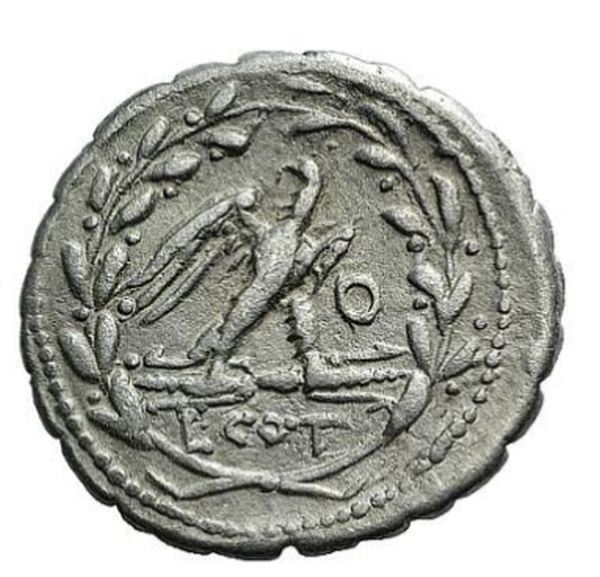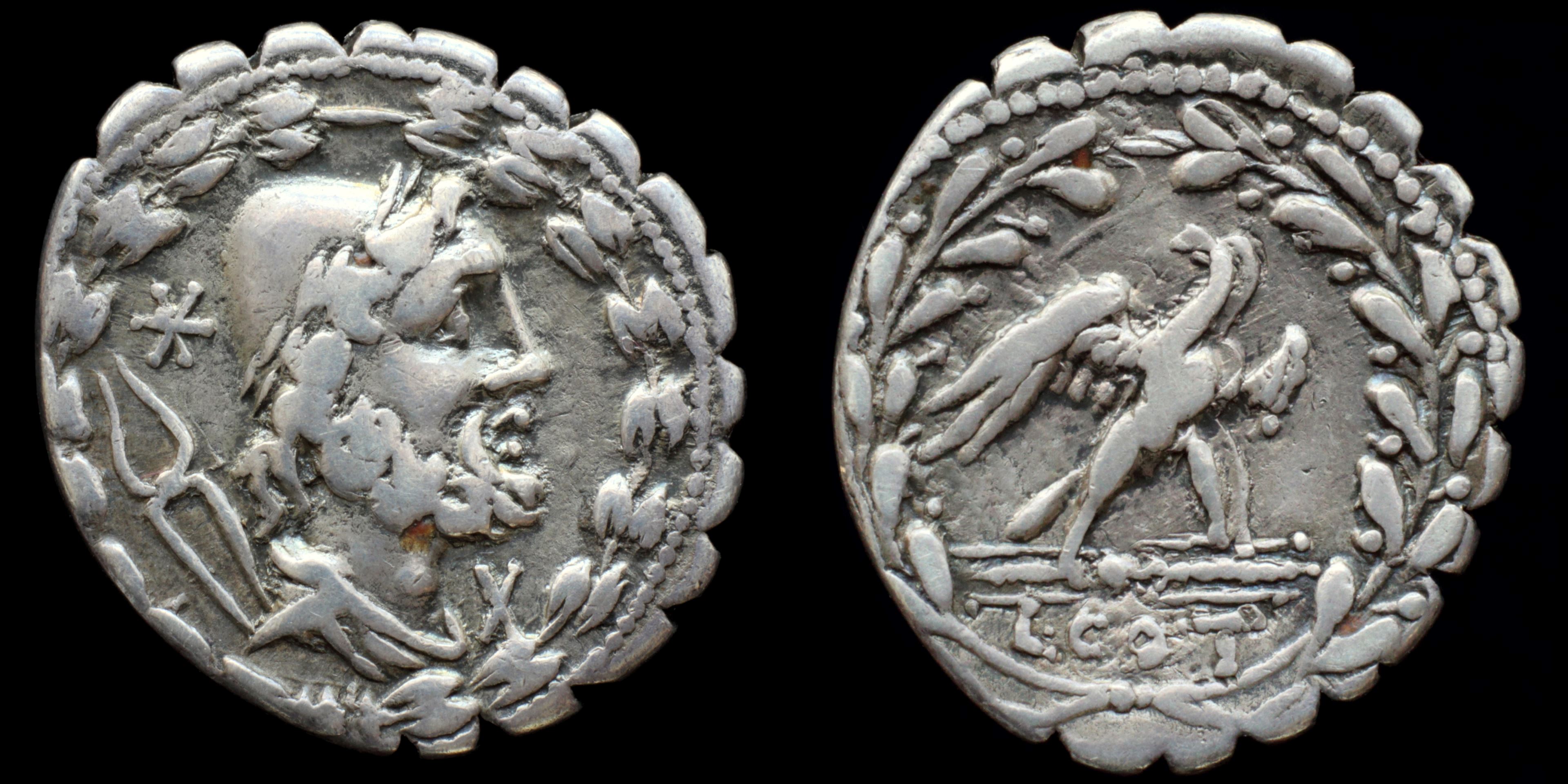Lucius Aurelius Cotta was one of the moneyers for the year 105 BC. He is not otherwise known.
Gens Aurelia was a plebeian family at Rome, which flourished from the third century BC to the latest period of the Empire. The first of the Aurelian gens to obtained the consulship was Gaius Aurelius Cotta in 252 BC. From then to the end of the Republic, the Aurelii supplied many distinguished statesmen, before entering a period of relative obscurity under the early emperors.
Cotta, the surname of the oldest and most illustrious branch of the Aurelii under the Republic, probably refers to a cowlick, or unruly shock of hair; but its derivation is uncertain, and an alternative explanation might be that it derives from a dialectical form of cocta, literally "cooked", or in this case "sunburnt".
Gens Aurelia was a plebeian family at Rome, which flourished from the third century BC to the latest period of the Empire. The first of the Aurelian gens to obtained the consulship was Gaius Aurelius Cotta in 252 BC. From then to the end of the Republic, the Aurelii supplied many distinguished statesmen, before entering a period of relative obscurity under the early emperors.
Cotta, the surname of the oldest and most illustrious branch of the Aurelii under the Republic, probably refers to a cowlick, or unruly shock of hair; but its derivation is uncertain, and an alternative explanation might be that it derives from a dialectical form of cocta, literally "cooked", or in this case "sunburnt".


An
AR
Denarius Serratus
struck 102 (105)BC
in
Sardinia
|
Narbonensis
Obverse: draped bust of Vulcan right wearing pileus; tongs left, all within myrtle wreath; (XVI) / X
Reverse: eagle on thunderbolt right, head left, all within laurel wreath; L·COT
Diameter:
19 mm
Die Orientation: -
Weight: 3.4 g
Die Orientation: -
Weight: 3.4 g
No notes for this coin
Crawford 314/1b, Sydenham 577, RSC I Aurelia 21
